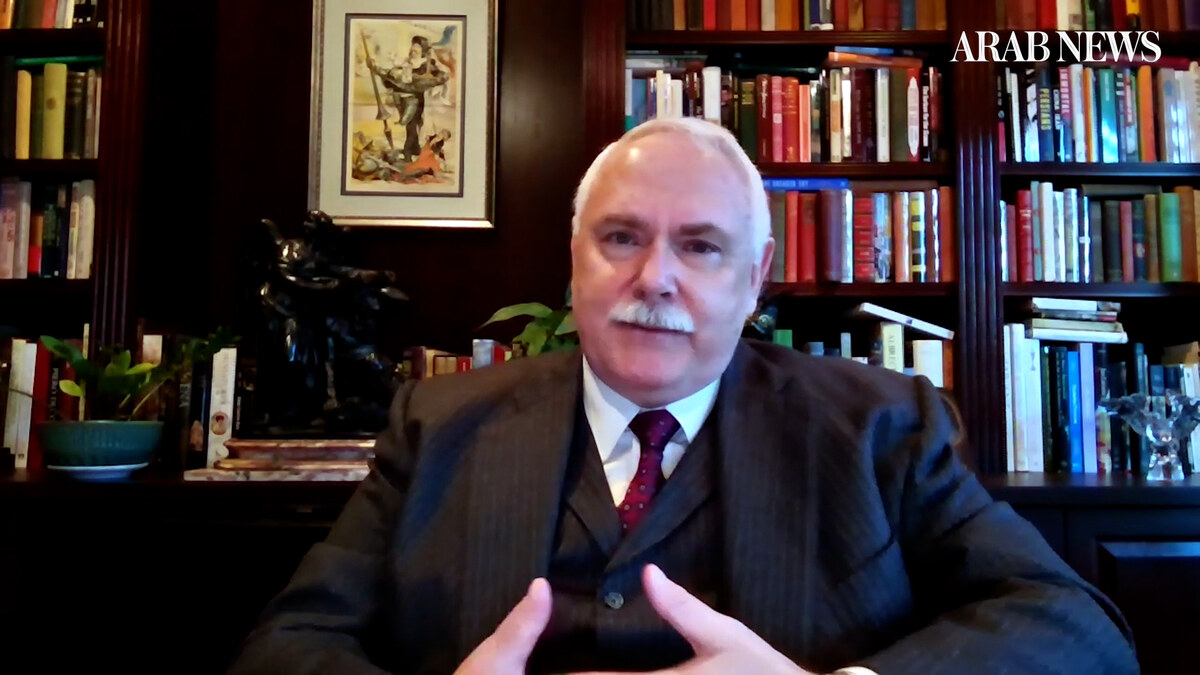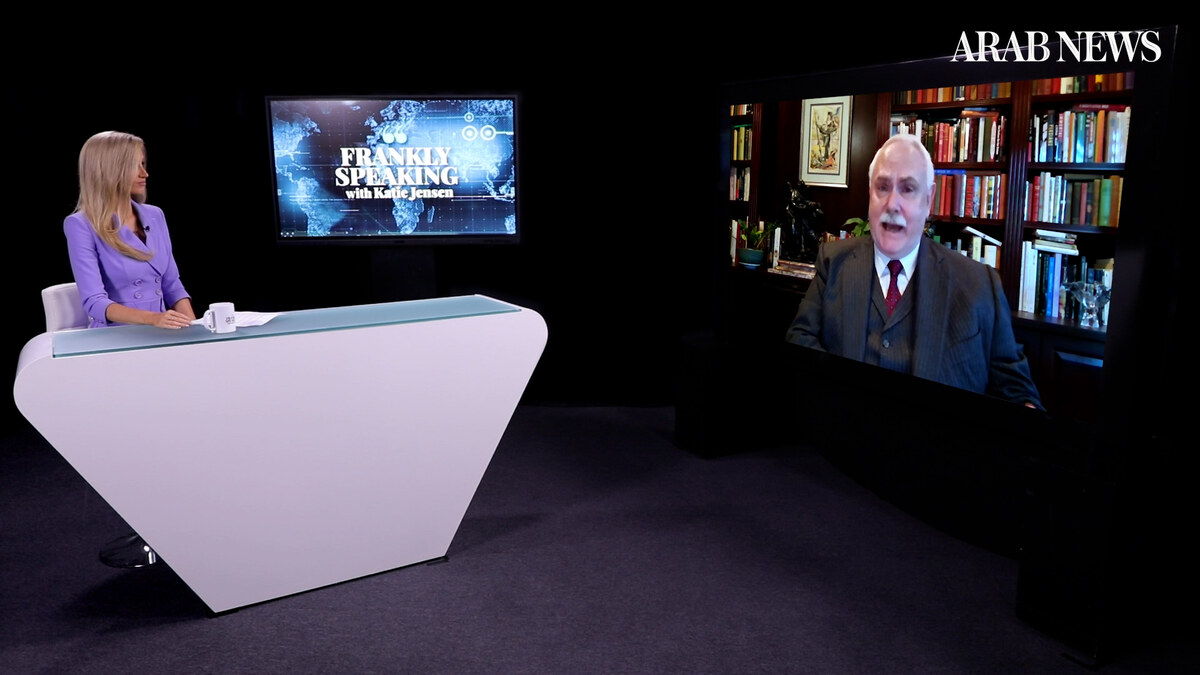ASHKELON, Israel: Effi Hajjaj has reopened his seafront stall in south Israel’s Ashkelon, offering coffee and snacks to beach-goers who are back in what he called a “victory” after almost 100 days of war.
Were it not for the sound of explosions from the besieged Gaza Strip, about 10 kilometers (six miles) down the coast, it may have appeared as a perfectly quiet day on the sandy beach.
“Victory means a return to routine, and a certain routine has returned,” said 55-year-old Hajjaj, whose business like many others had been shut after Hamas’s October 7 attack.
But behind the scene of normality, the trauma of the attack — the worst in Israel’s 75-year history — still looms large.
Palestinian militants stormed southern Israel and under a barrage of rockets, resulting in about 1,140 deaths, mostly civilians, according to an AFP tally based on official figures.
In response, Israel has vowed to eradicate Hamas, labelled a “terrorist” organization by the United States and the European Union.
A relentless Israeli military campaign has killed more than 23,700 people, mostly women and children, according to the health ministry in Hamas-ruled Gaza.
With fighting now mainly restricted to the narrow Palestinian territory, Israelis are for the most part protected from the violence but fear for captives held across the border and troops inside Gaza.
Around 250 hostages were seized on October 7, 132 of whom Israel says remain in Gaza.
“We have to keep going, move forward... but wherever we go, the conversations revolve around the hostages, around the things we’ve been through,” said Marina Michaeli, a 54-year-old real estate agent in Ashkelon.
“We’ve lost our joy,” she said.
Support for the war remains high among Israel’s Jewish majority, recent public opinion polls suggest.
In December, a Israel Democracy Institute survey found that 75 percent of Jewish Israelis were opposed to calls — including from close ally the United States — to reduce the intensity of bombing in populated areas.
And 80 percent felt that the suffering of Palestinian civilians should be given “little” or “very little” consideration in the context of the war, the poll said.
As soon as schools and shops reopened, many Ashkelon residents went on with their everyday lives.
And on the seafront, “people are going out again,” Hajjaj said.
On October 7, Palestinian militants reached the outskirts of the city.
But now, Hajjaj said, “there are hardly any rockets and they are no longer afraid of terrorist attacks.”
Most rockets fired from Gaza are intercepted by Israel’s Iron Dome air defense system.
Still, the hospital in Ashkelon has treated some 1,260 people for injuries related to the October 7 attacks or from rockets, according to a hospital spokeswoman.
Closer to Gaza as well as in areas along the Lebanese border, some 200,000 Israelis have been unable to return to their homes since the violence erupted.
The Israeli military has also called up 360,000 reservists in more than three months of war.
The army says at least 186 soldiers have been killed inside Gaza since the ground offensive began in late October.
Concern for soldiers, hostages and displaced Israelis means “we can’t talk about a return to normality,” said Denis Charbit, a political scientist at Israel’s Open University.
But he argued “Israeli resilience” is “the best revenge: to be deeply shaken, but to triumph with this incredible momentum and will to live.”
The stories of fallen soldiers and interviews with their families are all over TV and radio broadcasts, and posters of the hostages seem to cover every street corner.
Some are stamped with the word “Home” for those released, most of them during a one-week truce that began in November.
Others offer condolences: “May their memory be a blessing.”
While the “Bring them home now” campaign to free the remaining hostages keeps getting louder, there are also some signs of a return to pre-war life in Israel, a country of just over nine million.
Political controversies that had been put aside, most notably around the hard-right government’s judicial overhaul that last year divided the nation, have begun to reemerge.
And in early January, Israel announced it was sending several thousand reservists home in a bid to help boost the economy.
To support consumption, the Bank of Israel lowered interest rates for the first time since April 2022.
In Jerusalem, large crowds have returned to the city’s central Mahane Yehuda market, particularly at the start of the weekend.
“It’s wonderful to see people coming to shop... when everything used to be empty,” said Hanna Gabbay, 22.
“The country is still traumatized,” she said. “But life is stronger than anything, we have to keep going.”
In Israel’s north, a strip of land several kilometers along on the border with Lebanon has been evacuated due to clashes with Hamas-allied Hezbollah militants and fears of attacks on civilians.
In the south, the border with the Gaza Strip largely remains a no-go zone.
Most of Sderot’s 35,000 inhabitants have yet to return to their town just two kilometers from Gaza, where militants on October 7 killed at least 40 people.
Cats roam around a small square where a few shops have reopened but are struggling for customers. Only birdsong and the occasional passing car break the silence.
“We don’t feel safe,” said resident Eti Buhbut, 46.
“But we only have one country, and nowhere else to go.”
Israelis cautiously embrace ‘routine’ as Gaza war nears 100 days
https://arab.news/4sf2d
Israelis cautiously embrace ‘routine’ as Gaza war nears 100 days

- A relentless Israeli military campaign has killed more than 23,700 people
- With fighting now mainly restricted to the narrow Palestinian territory, Israelis are for the most part protected from the violence
































